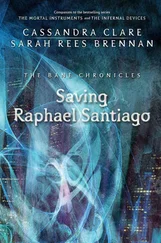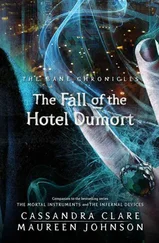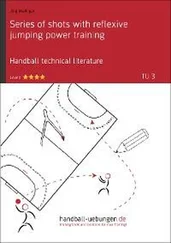Peru rests on our chief export—guano.”
“What’s he saying?” Ragnor asked.
“Nothing you would like, so far,”
Magnus said. The boat lurched beneath them on the waves. “Pardon me. You were talking about bird droppings.”
“I was,” said García. “For a long time the European merchants were the ones who profited most from this trade. Now laws have been passed to ensure that
Peruvian merchants will have the upper hand in such dealings, and the Europeans will have to make us partners in their enterprises or retire from the guano business. One of my ships, bearing a large quantity of guano as cargo, will be one of the first sent out now that the laws have been passed. I fear attempts may be made on the ship.”
“You think pirates are out to steal your bird droppings?” Magnus asked.
“What’s going on?” Ragnor moaned piteously.
“You don’t want to know. Trust me.”
Magnus looked at García. “Varied though my talents are, I am not sure they extend to guarding, ah, guano.”
He was dubious about the cargo, but he did know something about Europeans swooping in and laying claim to everything they saw as if it were unquestionably theirs, land and lives, produce and people.
Besides which, he had never had an adventure on the high seas before.
“We are prepared to pay handsomely,”
García offered, naming a sum.
“Oh. Well, in that case, consider us hired,” said Magnus, and he broke the news to Ragnor.
“I’m still not sure about any of this,”
Ragnor said. “I’m not even sure where you got that hat.”
Magnus adjusted it for maximum jauntiness. “Just a little something I picked up. Seemed appropriate for the occasion.”
“Nobody else is wearing anything even remotely like it.”
Magnus cast a disparaging look around at all the fashion-challenged sailors. “I feel sorry for them, of course, but I do not see why that observation should alter my current extremely stylish course of action.”
He looked from the ship deck across to the sea. The water was a particularly clear green, with the same shading of turquoise and emerald as in a polished green tourmaline. Two ships were visible on the horizon—the ship that they were on their way to join, and a second, which
Magnus suspected strongly was a pirate ship intent on attacking the first.
Magnus snapped his fingers, and their own ship swallowed the horizon at a gulp.
“Magnus, don’t magic the ship to go faster,” Ragnor said. “Magnus, why are you magicking the ship to go faster?”
Magnus snapped his fingers again, and blue sparks played along the weather-
worn and storm-splintered side of the ship. “I spy dread pirates in the distance.
Ready yourself for battle, my greenish friend.”
Ragnor was loudly sick at that and even more loudly unhappy about it, but they were gaining on the two ships, so Magnus was overall pleased.
“We are not hunting pirates. Nobody is a pirate! We are safeguarding cargo and that’s all. And what is this cargo, anyway?” Ragnor asked.
“You’re happier not knowing, my sweet little peapod,” Magnus assured him.
“Please stop calling me that.”
“I never shall, never,” Magnus vowed, and he made a swift economical gesture, with his rings catching the sunshine and painting the air in tiny bright brushstrokes.
The ship Magnus insisted on thinking of as the enemy pirate ship noticeably listed to one side. It was possible Magnus had gone slightly too far there.
García seemed extremely impressed that Magnus could disable ships from a distance, but he wanted to be absolutely sure the cargo was safe, so they drew their vessel alongside the larger ship—the pirate ship was by now lagging far, far behind them.
Magnus was perfectly happy with this state of affairs. Since they were hunting pirates and adventuring on the high seas, there was something that he had always wanted to try.
“You do it too,” he urged Ragnor. “It will be dashing. You’ll see.”
Then he seized a rope and swung, dashingly, across fathoms of shining blue space and over a stretch of gleaming deck.
Then he dropped, neatly, into the hold.
Ragnor followed him a few moments later.
“Hold your nose,” Magnus counseled urgently. “Do not breathe in. Obviously someone was checking on the cargo, and left the hold open, and we both just jumped directly in.”
“And now here we are, all thanks to you, in the soup.”
“If only,” said Magnus.
There was a brief pause for them both to evaluate the full horror of the situation.
Magnus, personally, was in horror up to his elbows. Even more tragically, he had lost his jaunty hat. He was simply trying not to think of what substance they were mostly buried in. If he thought very hard of anything other than the excrement of tiny winged mammals, he could imagine that he was stuck in something else. Anything else.
“Magnus,” Ragnor said. “I can see that the cargo we’re guarding is some very unpleasant substance, but could you tell me exactly what it is ?”
Seeing that concealment and pretense were useless, Magnus told him.
“I hate adventures in Peru,” Ragnor said at last in a stifled voice. “I want to go home.”
It was not Magnus’s fault when the ensuing warlock tantrum managed to sink the boat full of guano, but he was blamed just the same. Even worse, he was not paid.
Magnus’s wanton destruction of
Peruvian property was not, however, the reason he was banned from Peru.
The next time Magnus was back in Peru, he was on a job with his friends Catarina
Loss and Ragnor Fell. This proved
Catarina had, besides magic, supernatural powers of persuasion, because Ragnor had sworn that he would never set foot in
Peru again and certainly never in
Magnus’s company. But the two had had some adventures together in England during the 1870s, and Ragnor had grown better disposed toward Magnus. Still, the whole time they were walking into the valley of the Lurín River with their client, Ragnor was sending Magnus suspicious little glances out of the corner of his eye.
“This constant air of foreboding that you have when you’re around me is hurtful and unwarranted, you know,” Magnus told
Ragnor.
“I was airing the smell out of my clothes for years! Years!” Ragnor replied.
“Well, you should have thrown them out and bought clothes that were both more sweetly scented and more stylish,”
Magnus said. “Anyway, that was decades ago. What have I done to you lately?”
“Don’t fight in front of the client, boys,”
Catarina implored in her sweet voice, “or
I will knock your heads together so hard, your skulls will crack like eggs.”
“I can speak English, you know,” said
Nayaraq, their client, who was paying them extremely generously.
Embarrassment descended on the entire group. They reached Pachacamac in silence. They beheld the walls of piled rubble, which looked like a giant, artful child’s sculpture made of sand.
There were pyramids here, but it was mostly ruins.
What remained was thousands of years old, though, and
Magnus could feel magic thrumming even in the sand-colored fragments.
“I knew the oracle who lived here seven hundred years ago,” Magnus announced grandly. Nayaraq looked impressed.
Catarina, who knew Magnus’s actual age perfectly well, did not.
Magnus had first started putting a price on his magic when he was less than twenty years old. He’d still been growing then, not yet fixed in time like a dragonfly caught in amber, iridescent and everlasting but frozen forever and a day in the prison of one golden instant. When he was growing to his full height and his face and body were changing infinitesimally every day, when he was a little closer to human than he was now.
Читать дальше












